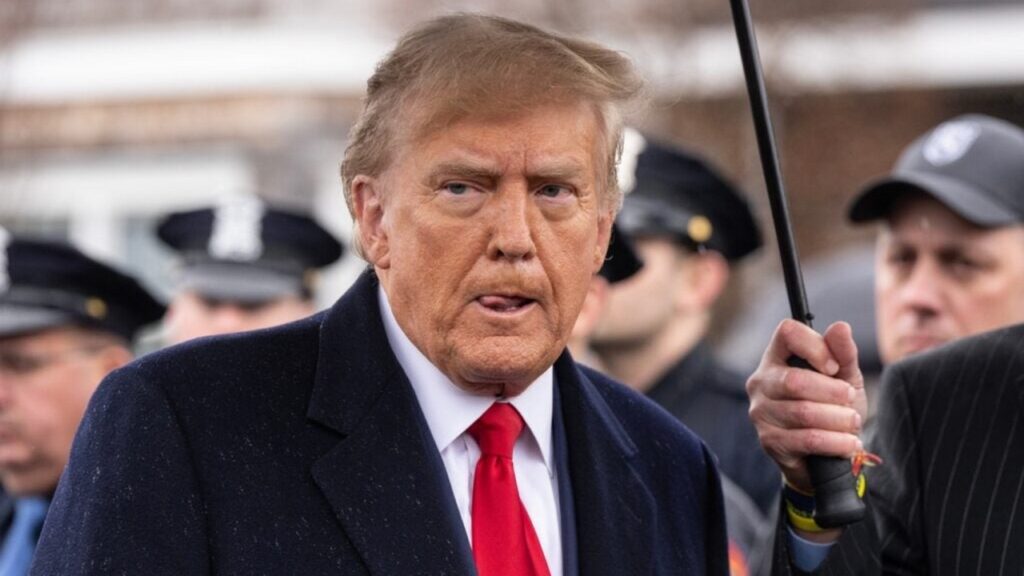Trump and Big Tech: Friends or Foes?

The latest twist in American politics, with Donald Trump’s return to the White House, has captured the interest of the technology sector. Leaders of the largest technology companies—Amazon, Meta, Microsoft, and Google—have all been quick to congratulate Trump. This swift outreach could signal an eagerness on the part of tech giants to mend fences and build more positive relationships, particularly at a time when regulatory pressures are mounting. What does this mean for the market, and specifically for meme stocks? Let’s break down the key dynamics.
Tech Giants Seek Favorable Relations
The CEOs of some of the biggest technology companies have expressed a willingness to rebuild bridges with Trump. This move could be about more than simple diplomacy; it’s also about the considerable influence Trump may have over ongoing antitrust proceedings. The hope is that a friendlier rapport with Trump could result in less intense scrutiny and a more favorable regulatory environment. For meme stock traders, this shift in focus could be significant. Less regulatory attention on Big Tech could mean smaller tech firms face less political pressure. With major tech giants out of the limelight, smaller tech startups—often favorites among meme stock traders—could benefit from decreased competition for investor attention. This dynamic might create an opportunity for these smaller companies to thrive with less intervention, leading to an influx of interest in these riskier, yet potentially rewarding, stocks.Antitrust Issues and Potential Regulatory Changes
Antitrust lawsuits against major tech companies remain a critical topic, but there is speculation that Trump might soften his stance or even intervene to slow the progression of these cases. Any easing of these pressures could alleviate some of the uncertainty that has weighed on the stock prices of giants like Meta and Amazon. On the flip side, less antitrust pressure could mean the big players remain unchallenged, which might motivate investors to look at promising smaller companies or startups for growth opportunities. Meme stocks in particular, which thrive in a market environment with high risk and potential reward, might draw more interest if regulatory barriers on smaller firms are lowered, and the competitive landscape remains in favor of established giants.Personal Relationships and Political Ambitions
The relationships between Trump and tech leaders are nuanced. Mark Zuckerberg has expressed admiration for certain aspects of Trump’s approach, despite past conflicts. Jeff Bezos, similarly, made congratulatory remarks, though his relationship with Trump has been historically contentious. These ironic congratulatory statements are not just humorous anecdotes; they underline how crucial it is for companies like Meta and Amazon to maintain balance in their relations with the government. For meme stock investors, this suggests that the tech sector could become less politically charged, opening up opportunities for smaller, lesser-regulated companies. This shift could create a more stable environment for those stocks to flourish without being swept up in political turbulence.Chips and Manufacturing: The Future of the CHIPS Act
The CHIPS Act, introduced during the Biden administration to boost semiconductor production in the United States, is likely to continue under Trump. This support is pivotal for companies like Intel and AMD, which stand to gain from policies that emphasize domestic production. For meme stocks in the semiconductor and tech sectors, the ongoing backing for American manufacturing could serve as a powerful catalyst. Government support for domestic production is a bullish signal for these companies and could make them more attractive for long-term investment, especially for those who thrive on market excitement and growth narratives.The Long Game: Implications for Meme Stocks
The companies that have moved swiftly to align themselves with Trump could benefit over the next few years. Meme stock traders should watch out for these “shadow” factors, such as the relationships between CEOs and the new administration, as well as the progression of antitrust matters. If Trump and Big Tech manage to find common ground, it could lead to market stability and reduced pressure on smaller innovative companies. This creates intriguing opportunities for meme stocks focused on technology, innovation, or startups. Investors in meme stocks should brace themselves for new dynamics in the tech sector—one that could either fuel wild, speculative plays or provide an unexpected stability that is ripe for strategic positioning. As always, investors should conduct their own due diligence and consider their risk tolerance before making investment decisions.Breaking news
See all






